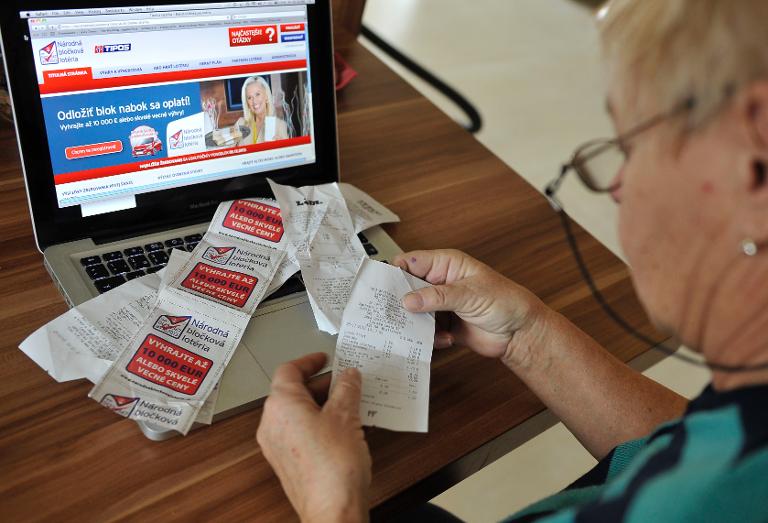
Slovaks gamble for a good cause with receipt lottery
(MENAFN- AFP) Slovak electrician Michal is not the gambling type, but twice a month he holds his breath during a lottery draw in the hopes of winning thousands of euros or a new car.
The 34-year-old is betting on getting lucky in Slovakia's receipt lottery, a new government measure in which all store receipts double as lottery tickets.
The scheme -- a bid to fight tax evasion by vendors -- has taught thrifty Slovaks to gamble for a good cause and has proven to be both a hit and a cash cow for the government.
"I don't spend money on gambling but why wouldn't I take part in this lottery?" Michal told AFP at a grocery store in downtown Bratislava, the capital.
"You don't have to buy tickets, you just register online the serial numbers of receipts you would otherwise dump or leave at the store."
He has spent hours registering around 90 receipts -- which can be done via a special mobile application or at a betting shop -- and driving his girlfriend crazy.
"All of a sudden, I'm finding old receipts all over our flat, it's a mess!" said Nina, who does not share her boyfriend's latest passion.
Tax evasion is a constant worry for the leftist government of Prime Minister Robert Fico as it struggles to cut its budget deficit to under the EU ceiling of three percent of gross domestic product.
"We launched the lottery to nudge people to request a receipt for every purchase because every time vendors sell their goods without a receipt, they essentially avoid paying the VAT" sales tax, Finance Minister Peter Kazimir told AFP.
The eurozone member has two value-added-tax rates: a 10-percent rate applies to books and medicine, while a 20-percent rate applies to everything else.
The Slovak government loses around 150 million euros ($204 million), or 3.5 percent of annual revenue, in VAT each year due to the grey economy, the finance ministry estimates.
But the lottery, which launched in September, is going a long way towards plugging the hole.
'500,000 extra tax inspectors'
"We are seeing more customers insist upon a receipt," Maria Belanova, sales manager at the Fresh Labas grocery chain where the first lottery winner shopped, told AFP.
Shoppers have registered nearly 30 million receipts since the launch, or five and half times the Slovak population of 5.4 million people, thanks to the promise of free money.
Each month 10 lucky shoppers -- whose identities are kept secret by the lottery operator -- win cash prizes of up to 10,000 euros, while another eight score a new car.
Taiwan and Malta also have similar lotteries, while Georgia launched one last year but cancelled it after seven months due to poor impact on national revenue.
Slovakia has fared better.
"In September and October the state has collected an extra 130 million euros in VAT, which will help us meet this year's budget goal," Kazimir said.
So far tax collectors have also received more than 3,000 reports from people who did not receive a receipt from a vendor or whose receipts were rejected as fake by the lottery system.
Officials have inspected hundreds of businesses and even closed one restaurant and two stores run by a European discount apparel chain that had been using fake cash registers.
"Slovakia has found almost 500,000 extra tax inspectors in those who joined the lottery," Kazimir said wryly.
Slovakia has been a member of the European Union since 2004 and the eurozone since 2009. Its economy -- driven by exports of cars and electronics to Europe, mostly Germany -- is expected to slow to 0.8 percent growth this year from two-percent in 2012.
"So far we are observing the early enthusiasm for the lottery. We will be able to quantify its effects in six months or a year after its launch," Viliam Palenik, an economist at the Slovak Academy of Sciences, told AFP.
"The key effect is that vendors will be more cautious and less prone to cheating not knowing which customer will report them to the tax authorities, while people will realise that paying taxes is normal."

Legal Disclaimer:
MENAFN provides the
information “as is” without warranty of any kind. We do not accept
any responsibility or liability for the accuracy, content, images,
videos, licenses, completeness, legality, or reliability of the information
contained in this article. If you have any complaints or copyright
issues related to this article, kindly contact the provider above.


















Comments
No comment